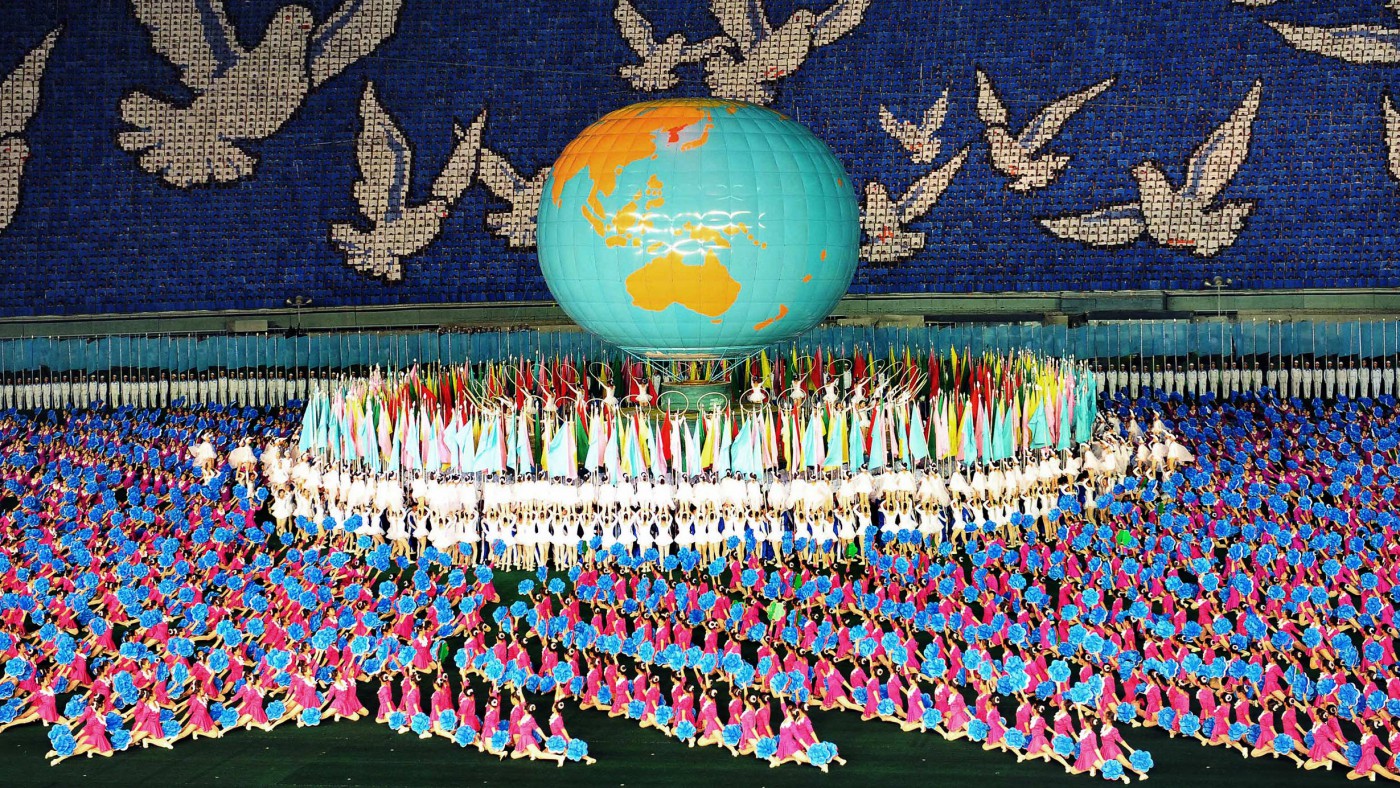North Korea usually only makes the news due to renewed military aggression, or when a defector publishes an account of their escape. Rarely is there any positive news coming out of the most isolated economy in the world.
But today, the Washington Post reports on a hopeful new development in the Hermit Kingdom: the establishment of 20 “economic zones”, where residents will be allowed to experiment with capitalism.
And they are getting lessons from the poster child for free market economies: Singapore.
Anna Fifield reports how the Chosun Exchange in Singapore has been training North Koreans in skills like marketing, business planning and IT. The North Korean government has also sent a handpicked group of officials there to complete a three-month “mini-MBA”.
And what have they learnt? Fifield describes some of the business ideas pitched during the final presentations, including a special ring which apparently absorbs sunlight to cleanse the blood of cholesterol (and also looks suitably flashy), and a medical tourism clinic in Wosan to compete with global spa resorts.
If the idea of a pre-industrial economy leap-frogging to a successful exporter of tourism and luxury goods sounds too good to be true, it mostly is. For one thing, economies need investment, and few foreign investors are likely to be attracted by a totalitarian state where the government can seize property at a moment’s notice. (In fact, owning private property is technically illegal.) For another, half a century of isolation and propaganda about the evils of capitalism and the immorality of profit has hardly laid the groundwork for a budding start-up culture.
But North Korea’s people are resourceful, and as defectors’ accounts have shown, entrepreneurial spirit can flourish in the darkest places, whether the plan is selling home-made ice cream or trafficking Korean brides across the Chinese border.
The North Korean government wants to make use of the talent wasted on the black market, while keeping absolute political control. By introducing special economic zones, it is following the footsteps of China in the 1980s, which liberalised the economies of some coastal cities, most notably Shanghai. China now has five special economic zones, fifteen free trade zones, and nearly a hundred cities and areas designated for specific technological development.
However, while China is the obvious model for such an endeavour, North Korea may well be getting inspiration from its Southern neighbour as well. For the last decade, South Korea has been developing Songdo, an international business district just off the coast of Seoul. While reports have mostly focussed on its futuristic technological infrastructure (think mobile phone-controlled home appliances, giant video conferencing screens, and a revolutionary underground waste-disposal system), the real attraction of Songdo is that regulatory laws will be relaxed there. It will offer a bubble for international companies who are put off by the rest of the country’s complex labour and business regulations, and is expected to become a hub for international trade.
Of course, there is a vast difference between a broadly market economy experimenting with more liberal regulations and a totalitarian state authorising pockets of commerce. South Korea is the world’s 15th largest economy – North Korea is the 115th. But the idea that North Korea may be taking lessons from the Asian Tigers, starting small controlled experiments in progress, is a promising one.
Don’t expect any giant leaps in the immediate future. North Korea is increasingly conscious of its image in Western media – foreign journalists are greeted with dazzling lights and well-stocked shops in Pyongyang, while the rest of the country endures power cuts and food shortages. It is telling that only government officials have been permitted to learn from the Singaporean experts. Perhaps this is another state-sponsored performance, like mandating that the women who interact with foreigners undergo plastic surgery. And if the zone project is extended, there is a risk North Korea will mirror China and be left with ghost cities, pre-planned urban extravaganzas overshadowed by towering empty apartment blocks.
But there is so little hope from that region, we must encourage whatever progress is being made. Twelve North Koreans have been taught about start-up development, patenting, unique selling points and growth strategies. For a country that denies the existence of supply and demand, that is truly radical.


